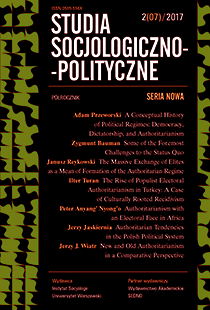
We kindly inform you that, as long as the subject affiliation of our 300.000+ articles is in progress, you might get unsufficient or no results on your third level or second level search. In this case, please broaden your search criteria.


Highlights from our coverage region: asylum seeker abuse in Croatia; opening up in Uzbekistan; Telegram abandons blockchain; stunning fossils in Bulgaria; and a friendly reminder for Georgia.
More...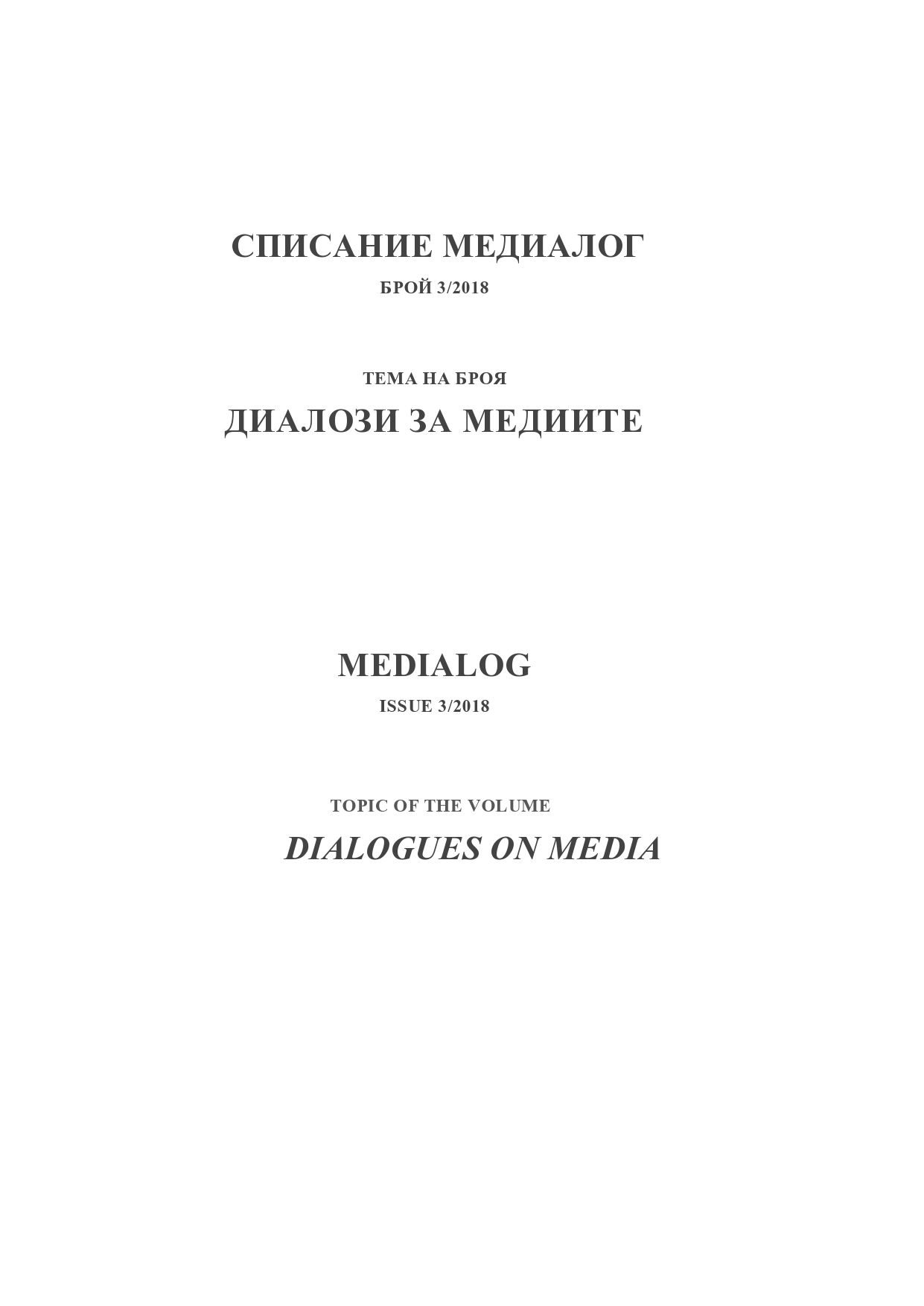
The text presents Bulgarian language web radio based on research in 2014 and 2017. It touches on highlights of its development after the first web radios appeared at the beginning of the new century. The article studies the changes in practices of listening portals. It compares data on web radio stations: number, distribution by format and address. It identifies trends: development of music web radios toward alternative group offers, sustainability of radios of idea-based communities, establishment of the 'marketing' radio, emergence of web radio community initiatives.
More...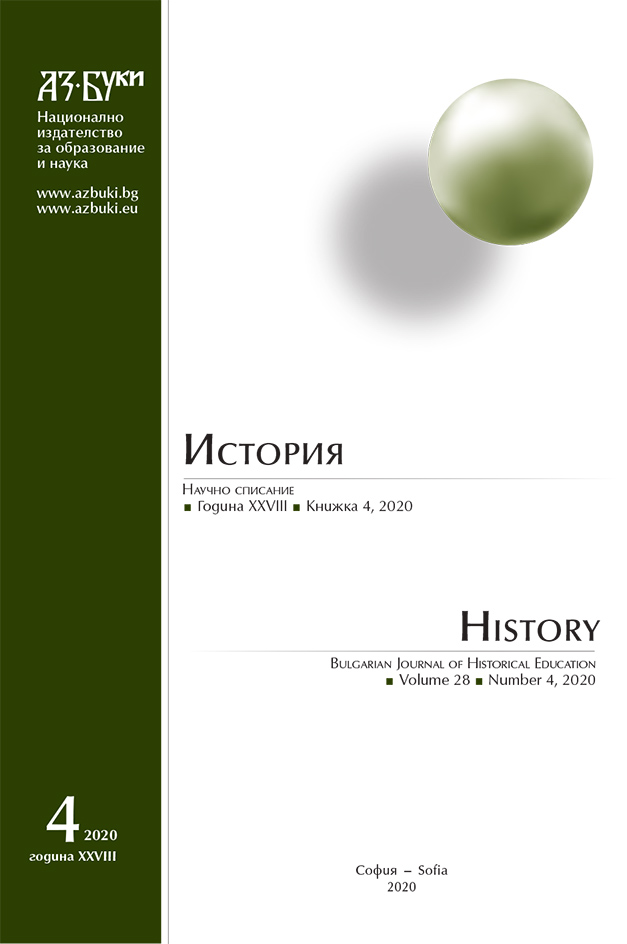
The article analyses the educational, cultural, national and political challenges in front of the Bulgarian diaspora in the Romanian town Alexandria from the second half of the 19th century to the Liberation of Bulgaria – keeping the native language, upbringing the young generation in patriotic spirit, relations with the countrymen who remained on the other side of the Danube, inclusion in the national liberation movement. The names of teachers, doctors and other representatives of the Bulgarian emigrant intellectuals who combined their professional activities with intense socially useful activity are mentioned. Part of them turned into notable names in Principality of Bulgaria after the Liberation.
More...
The article presents research on the Military Order of Courage and Soldiers' Cross for bravery of His Majesty's Navy during the Balkan Wars and World War I. The interest is focused on the conditions in which the ship's crews and shore units were assigned in solving combat tasks, the scale of force of the forces in counteraction to a repeatedly superior opponent, the contribution of the most prominent of them to success, and the assessment that was given to them. The award-winning Naval Officers are presented as an association of professionals and like-minded people who have built an organic society of the Knights of Courage. Later periods of activation of the Military Order are shown in fragmentary form.
More...
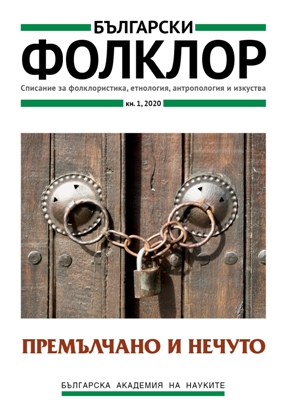
This article aims to provide unknown information about the traditional culture of the Tatars from Northeastern Bulgaria. This ethnic community today is experiencing a process of active linguistic and cultural assimilation. The text analyses the two main cases. The first illustrates the role of the science and the work of researchers as an important tool against forgetting. The second provides the so-called аutosanction. In this example it means suppression and destruction of relics, which are valuable ethno-cultural characteristics of the community. The observations are the result of the analysis of publications in Hungarian ethnographic editions, of fieldwork in the region of Dobrich (Dobrich, Onogur, Yovkovo) and of archival work.
More...
The present article follows the relations of the Gypsy activists from Shumen with the International Roma Union, the attempts to send representatives to three of its congresses, as well as the control exercised by the authorities on these activities in the period 1966–1981. Archival documents and narratives of the witnesses of the events or of their relatives have been used. First of all, the analysis of the documents and narratives shows that the so called Gypsy nationalism (that lead to putting under observation of the Gypsy activists and to the restriction of their attempts to maintain contacts with the International Roma Union) was groundless. The article will also show that the self-study attempt of the Gypsies in Bulgaria were actually the efforts of a small group of representatives of the Roma intelligentsia, but not an all-Roma movement.
More...
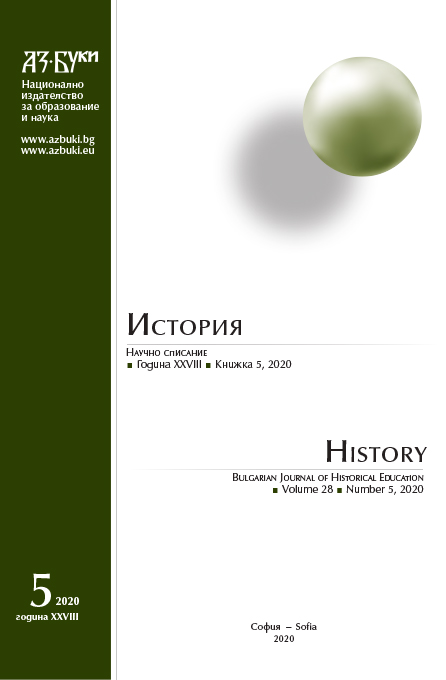
The article analyzes the illustrated postcards of the early twentieth century as a source of the iconography of the Russo-Turkish War of 1877 – 1878 and the objectives of the worldview of Bulgarian and Russian societies in the early 20th century. It is emphasized that during 1902 – 1912 the postal cards, dedicated to the events and participants of this military conflict, were repeatedly published in Russia and Bulgaria. It was found that the most popular were postcards with views of battle paintings by V. Vereshchagin, M. Dmitriev-Orenburg, O. Popov and others. It is determined that the theme of this war was relevant until 1912.
More...
The article presents an analysis of honesty as an important aspect of the Bulgarian economic culture. The focus is on the transition from the Bulgarian Revival to the nation state and the subsequent period 1879 – 1944. The main conclusions are synthesized in two hypotheses. The first is that the transition from Ottoman rule to an independent nation-state is associated with a decline of honesty and integrity in economic life. The second hypothesis points to the low level of honesty and mutual trust in relations between economic agents on the one hand and between economic agents and the state on the other as one of the important reasons for the lack of visible and long-lasting economic success in Bulgaria during the period 1879 – 1944.
More...
El Estatuto Real is a piece of legislation passed in the Spanish monarchy in 1834, representing a “donated” charter, which does not derive from the principle of national sovereignty, but on the contrary – represents the benevolence of the monarch to his subordinates. Although the text of the decree lacks a description of the rights of the population, does not contain a clear and comprehensive definition of the prerogatives of the various authorities, it should be noted that it puts an end to the theoretical principles and ideological statements of the Ancient Régime. Thе article analyzes this document, which presents the moderate liberal views, and in our opinion is an elegant attempt to strike a balance between the traditional principles, institutions and attitudes of the Catholic monarchy, while presenting Spanish society the opportunity to begin building a limited monarchy where the principles of liberalism are largely imposed.
More...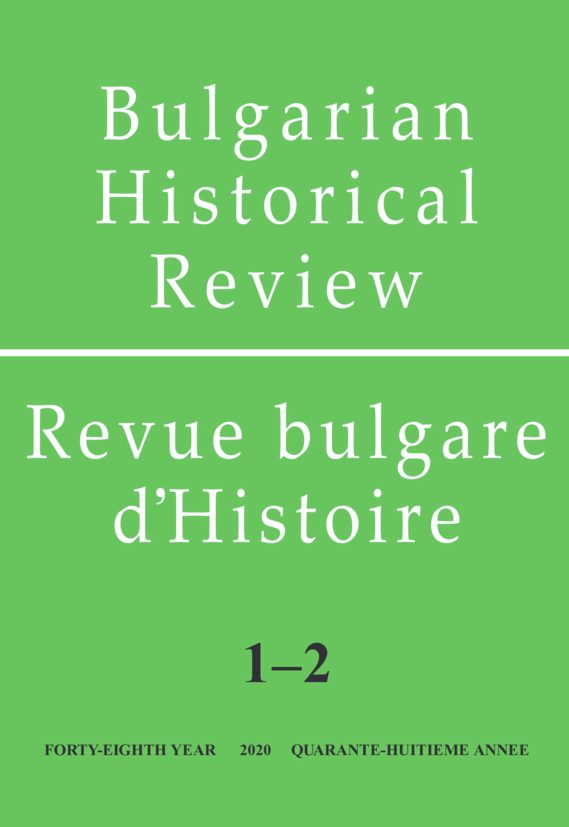
Education is the system that allows countries to look forward to the future in a strong, confident, and hopeful way. Teachers are the practitioners of education and teaching is a skill, a competence, moreover, it is a kind of art. Giving good education at schools, the success of the society in a country can be promoted with qualified teachers. Teacher training institutions play an important role in the education of well-equipped teachers. For this reason, by 2000s, many countries have focused on educational research, and the key of this research has become “more qualified teachers for better education”. Teaching requires great dedication, skill, patience and love. Teaching has their own rules, methods and practices. The most important source by 2000s is human resources. It is human intelligence that allows unlimited as it is processed. Teachers are the pioneers of education implementations. This study will focus on the historical development of teacher training in Turkey since the foundation of the Republic of Turkey. Economic losses in the following years in particular, led to a decline in the teaching profession and social status within society. Raising this declining prestige of the teaching profession is absolutely necessary for training good teachers and for recover its economic and social status first. The paper examines some of the inadequacies in education at the beginning of 2000s in Republic of Turkey, such as having less qualified educational operations except specific cities and schools; preventing the development of critical approach abilities because of the memorizing based education system; paying less sufficient attention in student abilities in the arranged education and training programs; training consumer people instead of productive people that is needed by society in the educational institutions; professional improvement problem because of education management. However, it can be said that many of these deficiencies are resolved today.
More...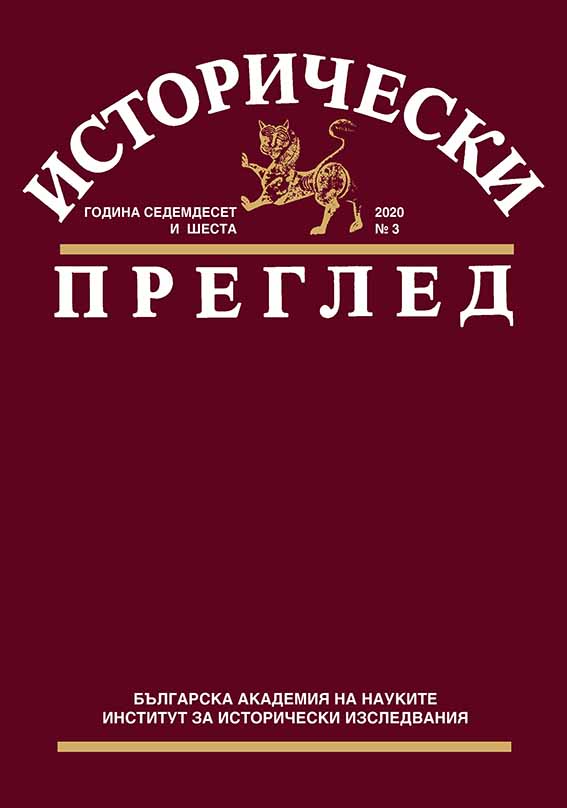
The article presents the results of an inquiry conducted among historians and non-historians in the framework of an international research project. The purpose of the survey is to examine the attitude of modern Bulgarian society to Russia/Soviet Union/Russian Federation and its role in Bulgarian history. Respondents answered questions related to the more general problem of the role of myths in history in general and those related to Russia in particular; how myths are born; which factors contribute to their public dissemination; which moments in history are most distorted or falsified in textbooks and in the media; who is interested in this; Is it possible to demythologize the Bulgarian-Russian relations. The inquiry showed the deep differences in Bulgarian society towards Russia. The majority of Bulgarians have a strong emotional attitude towards it, regardless of whether they express negative or positive feelings. And this division is manifested in all professions, ages, social groups. The survey gives grounds to conclude that despite the profound changes from the years of transition and the reorientation of Bulgaria to Western institutions, Bulgarian-Russian relations continue to be important for the Bulgarian society.
More...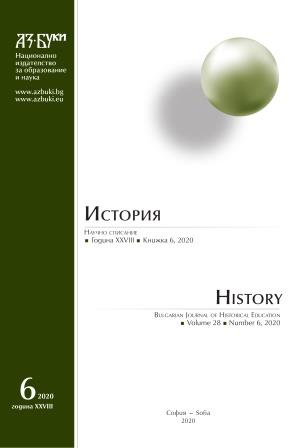
This article focuses on the daily experience of tolerance between different ethnic and religious communities in Bulgaria. The modern political uses of ethno-religious differences, in our opinion, do not lead to the need to discover new mechanisms of coexistence, but require the study of already acquired historical experience and the interweaving of these methods in new realities.
More...
At the end of 1917 and the beginning of 1918, the process of the nationalization of army units took place on the Romanian Front of the Russian army. In conditions of army disintegration, in order to keep the front fighting against the Central Powers, the Russian Command planned to create two Ukrainian, two Polish, one Muslim corps, as well as Belarusian, Lithuanian, Moldovan, and Siberian military units. During the nationalization of troops on the Romanian Front, the entire corps and divisions, as well as smaller military units were given over to Ukrainization, Polonization, Muslimization, etc. Based on archival documents, the article identifies the numbers of major military units, smaller units and subdivisions intended for nationalization, and traces the course of nationalization. The causes of failures of the nationalization process were determined, and the fates of the nationalized formations of the Romanian Front were traced.
More...
Technoexportstroy has long been publicly considered as an extraordinary successful company, with a high contribution to the social and economic progress of the developing countries recently liberated from their colonial or mandate status, as well as a provider of generous foreign currency incomes to the state treasury. This romantic image has been sustained by Todor Zhivkov public statements, too. This paper aims to explore the scale and profitability of the company’s performance, the opportunities it had and whether the latter led to breakthroughs or losses, the extent to which the reported results were due to an independent initiative and activity. In order to achieve these goals, a critical analysis has been performed, comparing the data in the preserved archival documents of the organization with those of the BCP leadership, the Ministry of Foreign Trade, as well as with the information in some foreign specialized sources, which, also based on their economic interest in the developing countries, had been publishing up-to date information about the contracts signed for the construction of industrial sites.
More...
The text aims to present a translation of a document from September 1451, defining the boundaries of the land of Krichim as mulk of the Grand Vizier Chanderli Khalil Pasha, contextualizing the information in it with the published and commented so far about the region as the economic base of the mulk. Waqf, as well as a horizontal structure in which interactions between the settlement and the network of religious infrastructure are visible.
More...
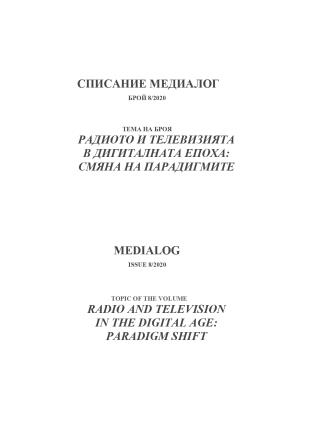
The article presents the results of a survey of BNT and BNR news on social networks during the state of emergency in Bulgaria in connection of COVID-19 pandemic (March 13 to May 13, 2020). The aim is not only to explore how the both media are presented on the different social platforms for media activity, but also whether and how they build their social networks (including on their websites) and what news agenda they set in the conditions of crisis.
More...